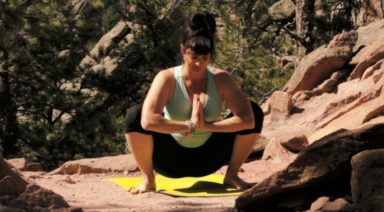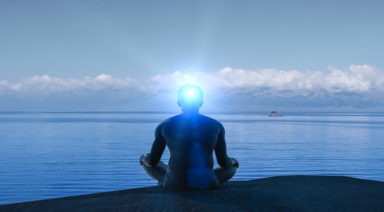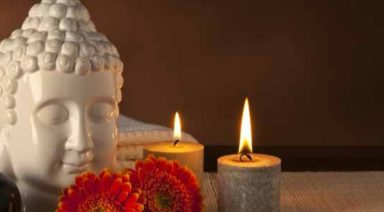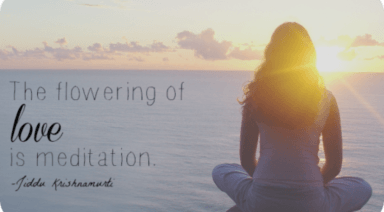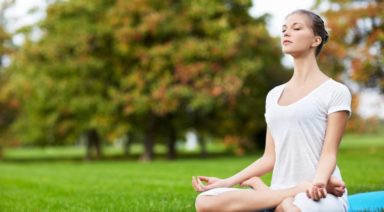How to Sync Up Your Mind, Body and Heart
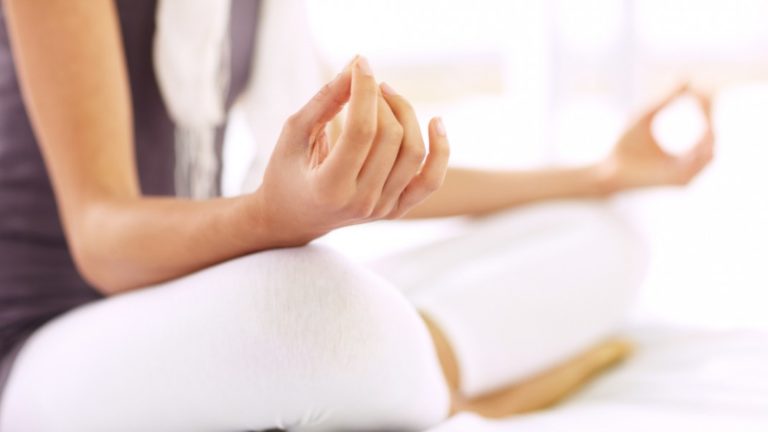
Wake Up and…Stop?
The alarm goes off, our eyes open, and our brain starts going. What’s on my agenda for today, we wonder. With stress mounting, we reach for our smartphone. The notification light is flashing: text messages, emails, reminders… There’s so much to do! We power up and hop out of bed, hit the shower, drink our coffee, and get busy. In just twelve “short” hours, we’ll be able to wind down on the couch with some piece of our technology.
Plugging In, But Not With Ourselves
Already our heart is racing, our senses are on full alert, and we are prepared to seize the day by the collar. We’ve checked our messages, the weather, the news reports, the day’s to-do-list, and the gas tank, and although we may feel a little anxious, we seem satisfied that we’ve got it all covered.
But actually, deep inside we know we don’t. We have forgotten to check in on the most important aspect of our day: ourselves. We have connected our phone to the car charger, but we have forgotten to connect ourselves to our inner source of patience, gratitude, confidence, and peace. We’ve synced up all our Bluetooth devices, but we haven’t synced up our mind, body, and heart.
So how do we make this crucial connection to better prepare ourselves to greet the day with the confidence that we can handle anything that comes our way and with the inner knowledge that nothing can shake us off our higher ground? It truly is a simple, doable process: Instead of “wake up and go,” we wake up and stop. Literally . .
Wake Up and Stop
The alarm goes off, our eyes open, and we feel gratitude for the new day. The worries of the world can wait a bit, as we rise from our bed with an intention to meditate—to sit with ourselves—before engaging the outside world. We take care of the few things, like brushing our teeth or walking the dog, and then we go to our quiet space and close our eyes. For those few precious minutes we sit with ourselves to be with our breath without any judgments or expectations.
A Guide for Opening & Connecting
Learn the art of mindfulness and loving kindness — the foundations for living with an open heart — in The Yogi’s Heart, a guide for opening and connecting. For it is only when you approach life from a place of openness can you embody connectedness with all things.
Do This Every Morning
In our quiet space, a room, a corner, on a cushion or on the floor, we sit with the intention of “spending time with ourselves,” away from the external world. We choose a meditation practice. We may begin to say our mantra, pay attention to our breath, repeat inspirational passages. Any of these can become the object of our meditation that we can bring our mind back to when it wanders or becomes engaged in thought. We let our thoughts come and go, but when the mind starts to engage a thought we gently bring our focus back to the object we have chosen. This is our practice of being with ourselves, of calming the mind, as we go within to access our inner wisdom, our inner voice, of guidance, strength and love.
In doing this every morning we bring our mind, body, and heart into alignment—so that all parts of us are on the same page when we go about our day. We get a deep sense of how we are feeling that particular day which allows us to make adjustments where necessary. Through this process of checking in with ourselves, we are better able to recognize the many opportunities we will have in the day ahead to be the most magnificent version of ourselves that we can be.
When our meditation is over, we then move on to our “to-do” list from a calmer, less impatient, and more peaceful place—simply because we have taken a few moments to stop, even before we begin.
How to Create a Meditation Altar

In The Miracle of Mindfulness, Zen Master Thich Nhat Hanh says that we should meditate because “each of us needs to realize total rest…mindfulness is the miracle by which we master and restore ourselves.” Sometimes, even a full night’s sleep doesn’t help you achieve total rest. How can the restless truly rest in modern society? Mindfulness, or the art of living in the present moment, is an important state of being to achieve in such a busy world. It’s not only good for your overall well-being, but it’s also an excellent way to practice self-love. Discover how to make a meditation altar designed for your specific spiritual practice.
1. Develop a Daily Meditation Practice
As we rush through life, many of us feel like we’re not quite present in every moment. According to Karen Kissel Wegela, Ph.D., to counter this feeling, practice mindfulness meditation. Meditation allows you to let go when stressed and accept yourself just as you are – your thoughts, feelings, and emotions as they arise from moment to moment.
It is important to have a meditation practice that grounds and centers you daily. Such a practice will allow you to feel strongly connected to and centered with yourself. Sometimes, breathing exercises aren’t enough. You need a physical place to go to and rest. While mindfulness meditation can be practiced anywhere, having a sacred space to call your own is important. An altar is a beautiful space full of sacred energy that you can tap into when you need it. Anyone can create an inspirational altar with just a few items and pure intention.





